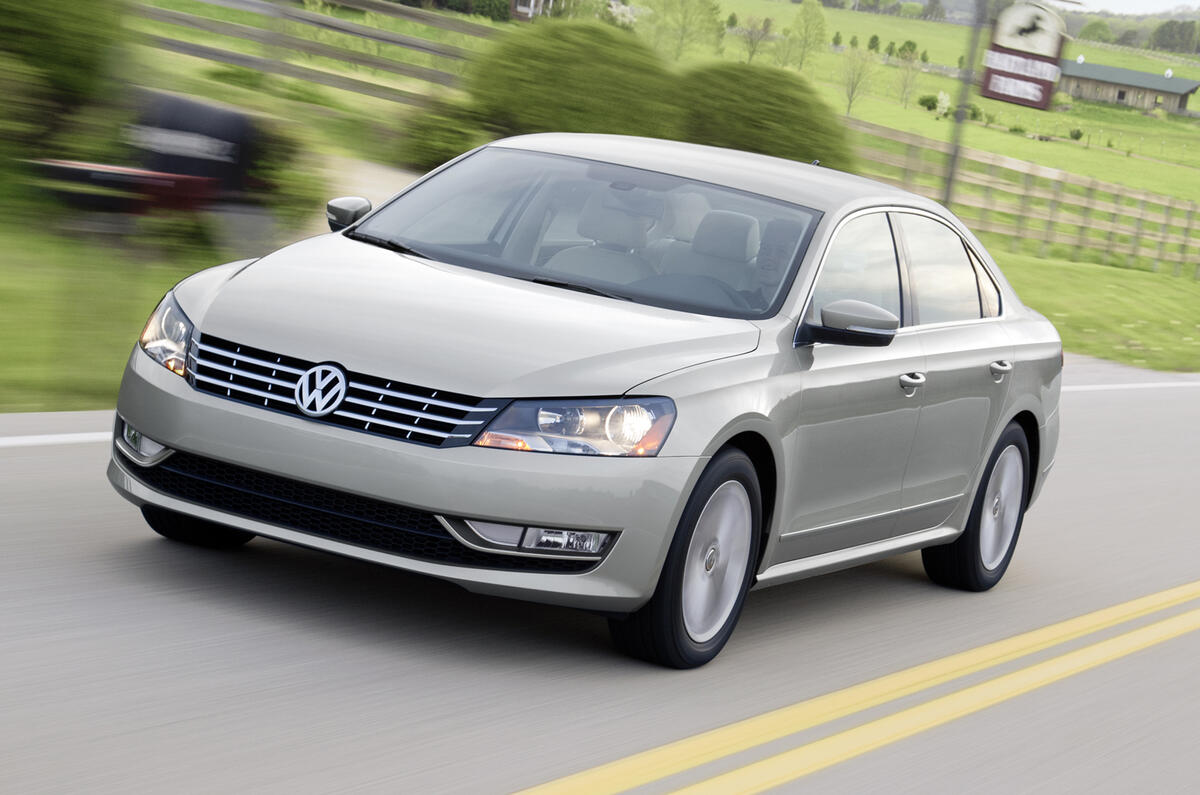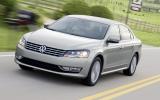What is it?
This is the US-spec VW Passat, which in America costs from around £13,000. But before you phone your nearest dealer and accuse them of ripping you off, bear in mind that, despite its name and similar visual appearance, the car is significantly different from the Euro-spec VW Passat.
The US-market Passat sits on an extended version of the European car’s platform, which makes it 10cm longer, 1.3cm wider and therefore more spacious. Every body panel is different and it has a bespoke interior. However, despite its low price, VW hasn’t followed the example of its US-spec Jetta and fitted less sophisticated suspension to the American Passat; instead, it keeps the same advanced multi-link suspension of the European car.
Much of the cost saving comes from the fact it is built in the US, at a $1 billion plant in Chattanooga, Tennessee, using 80% US sourced parts – and, perhaps, because VW isn’t chasing profits aggressively as it seeks to triple its US sales to 800,000 cars a year by 2018, thereby challenging the likes of Honda and Toyota.
It is sold with a range-topping 276bhp 3.6-litre V6, along with a 168bhp 2.5-litre petrol –the predicted best-seller – and a 138bhp 2.0 litre diesel. Here we test the two extremes of the range.
A lightly modified version of this car is also on sale in China.
What’s it like?
Critics say it’s bland to look at, VW claims it’s a timeless and sophisticated design – and you can be the judge.
Certainly the interior loses little to its European counterpart. The quality of the materials is a match for the best, and all of the equipment is pretty familiar, save for some larger cup holders in the door pockets and the slightly low rent analogue clock in the centre of the dash.
It’s spacious too, those extra centimeters sitting within the wheelbase and adding welcome shoulder and leg room in the front and back. The only oddity is that the rear seats don't run to the edges of the cabin, leaving hard plastic filling out the resultant gap. It’s not a major problem, but nor is it the last word in sophistication.
On the road, the impression was positive. Road and wind noise were ever-present, especially on the poorly surfaced roads we tested on. The steering is sluggish at all speeds, and the ride on the firm side. But none of these issues were overwhelming; always that asking price, which remains competitive as you move up the range, loomed as a positive.
Inevitably, the diesel felt the better of the two motors, both of which were linked to six-speed DSG gearboxes. That’s in part was down to familiarity, the four-cylinder 2.0-litre VW unit needing to be more modern than its petrol counterparts to meet diesel emissions regulations. In contrast, the old school V6 petrol felt fun but indulgent, refined but a bit of a hoodlum in the modern world.
Should I buy one?
Unless you live in the US, or VW changes its marketing plans, you won’t be able to. If you are in the market, then it makes an intriguing and good value alternative to the Honda Accord, Toyota Camry or Hyundai Sonata.
Price from: £13,000; Engine: 3.6-litre V6 petrol/2.0-litre diesel; Power: 276bhp/138bhp; Torque: 258lb ft/236lb ft; Gearbox: Six-speed DSG.
















Join the debate
Add your comment
There's an argument that MQB
There's an argument that MQB is stretched too far here. It's a world class platform for hatchbacks not 5m long SUVs. Touraeg has a proper longitudinal drivetrain and is good off road. But SUV buyers tend not to care about such things - in the dealership they will see that the Atlas offers more space for less cash.
Re: Volkswagen Passat USA/China
Timeless and sophisticated? must remember that the next time there is another dull and boring VW. hahhahaahhah.
Re: Volkswagen Passat USA/China